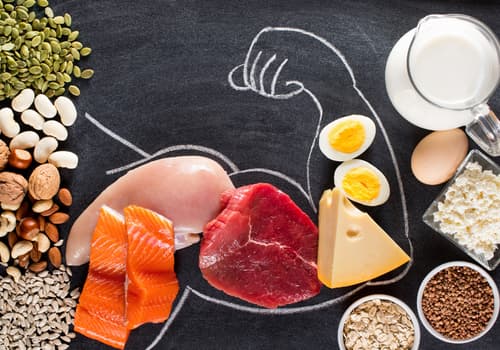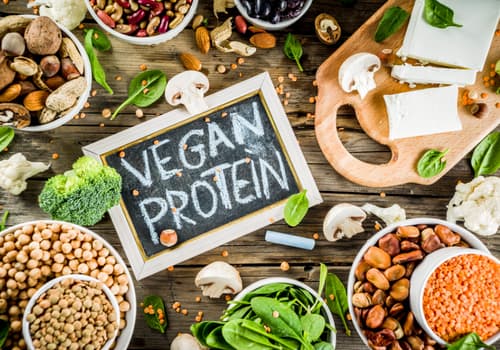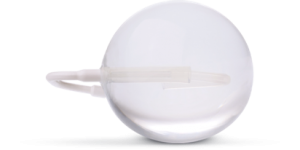The debate regarding plant protein vs meat protein has been raging for some time now. Which source represents the most viable option for your dietary needs? This seemingly simple question actually involves more than may initially meet the eye. In order to shed some light on the subject, it is important to address several additional questions. What is the importance of protein in the body? Does the recommended amount of protein vary in relation to the source? Is there a danger of too much protein in a diet? Let’s examine these topics in more detail.
The Importance of Protein in the Body
There are several reasons why our bodies require a daily source of protein. Proteins are the veritable “building blocks” of muscle fiber; crucial in terms of musculoskeletal strength and stability.
Protein also helps cells to repair damage and it plays a critical role in producing new ones. Without this nutrient, our bodies would quickly grind to a halt. Protein is also vital in terms of growth for children as well as pregnant women.
What is the recommended amount of protein?
Another issue with protein involves how much should be consumed. Is there a danger of too much protein? When consumed in excessive amounts (more than 1.5 grams per pound of body weight), the additional calories may actually be stored as fat. There may also be times when low-carb diets can place a greater amount of strain upon the organs that help to digest this protein (such as the liver and the kidneys).
Ultimately, daily consumption recommendations will revolve around several factors such as your age, your level of physical activity and whether or not you are looking to increase your proportion of lean body mass. How much protein is enough? Generally, experts recommend 20-40 grams of protein per meal. Older people are believed to require more protein to keep their muscles in good condition.
Another perspective suggests that all adults eat 0.8 grams of protein for each kilogram of body weight. So a person who weighs 220 pounds (100 kilos) would need 80 grams of protein a day.
It is therefore a good idea to speak with a nutritionist in order to better appreciate your unique dietary requirements. He or she will be able to shed a great deal of light on the recommended amount of protein.

Top Protein Foods: Plants and Meats
What top protein foods should you consider? This partially depends on the diet that you choose to follow. There are still some useful suggestions to keep in mind. Here are a handful of healthy meats to choose:
- Chicken and turkey breast
- Salmon (also a source of Omega-3 fatty acids)
- Pork tenderloins
- Lean-cut beef
If you are instead embracing a plant-based diet, here are some other foods to incorporate:
- Chia seeds
- Tofu
- Quinoa
- Oats
- Peanut butter powder
- Soy milk
There are also many other foods to include, so feel free to perform additional online research.
The big myth about protein: What do the Experts Have to Say?
Depending on who you listen to, protein from animal sources (meat, poultry, eggs, dairy) is either the most important nutrient in a healthy diet or vastly overrated. Here are some points to consider when you’re building a healthy diet for yourself.
Developing cancer
Studies from the World Cancer Research Fund and the American Institute for Cancer Research show a relationship between red meat and colon and rectal cancer. Processed meat, such as hot dogs and deli, are associated with a greater chance of developing stomach cancer.
Toxic to the body
Most people in America and Western Europe eat as much as two times the animal protein than they need for optimum health. Holly Wilson, MD, board certified Emergency Medicine doctor and vegan since 2007 wrote, “Excessive animal protein is incredibly toxic to our bodies. The liver’s ability to convert excess nitrogen to urea is saturated, and the blood becomes acidic. This can cause you to lose a significant amount of water (leading to dehydration), muscle mass, and bone calcium”.
Cholesterol
One issue associated with the consumption of protein involves the presence of saturated fats. This is particularly relevant when referring to red meats. Thus, some professionals recommend plant-based sources in order to maintain healthy levels of cholesterol and to avoid those dreaded “love handles”.

Isolated whey protein
Indeed, one viable alternative to meat-based protein may come in the form of isolated whey protein. As this supplement is much easier to digest, it will provide more benefits to the end user without side effects such as bloating, cramping and indigestion.
Healthier protein
So if you need a good amount of protein each day and you want to avoid red meat and processed meat in order to keep your cancer risk low, what options do you have?
Surprisingly, researchers have found that plant-based foods are a much better source for meeting your protein needs than animal-based foods. T. Colin Campbell, Ph.D., author of The China Study, a groundbreaking study on the connection between human nutrition and disease, wrote, “There is a mountain of compelling research showing that plant protein allows for slow but steady synthesis of new proteins, and is the healthiest type of protein.”
Most people don’t think of plant-based foods as containing protein, but the chart above lists many excellent sources of vital protein that don’t come with the health risks associated with animal-based proteins.
Protein absorption
However, it can be argued that absorption rates are the most important variable to consider. Some types of proteins are more easily digested than others. It is therefore interesting to note that recent studies seem to indicate that plant proteins are not absorbed as easily when compared to meats such as chicken breast. Note that this may depend on the individual as well as his or her metabolism.

Consume protein with your Spatz3 Gastric Balloon
If you have recently obtained a Spatz3 adjustable gastric balloon, monitoring your protein is even more important in terms of digestion and how many nutrients your body receives. Whether you are a meat lover or a vegetarian, there are always options at your disposal!
Please note that the observations mentioned above are only meant to serve as rough guidelines. Science and nutrition are continuing to advance at a breakneck pace. Therefore, it is likely that even more vital information will be uncovered in terms of the plant protein vs meat protein debate.


